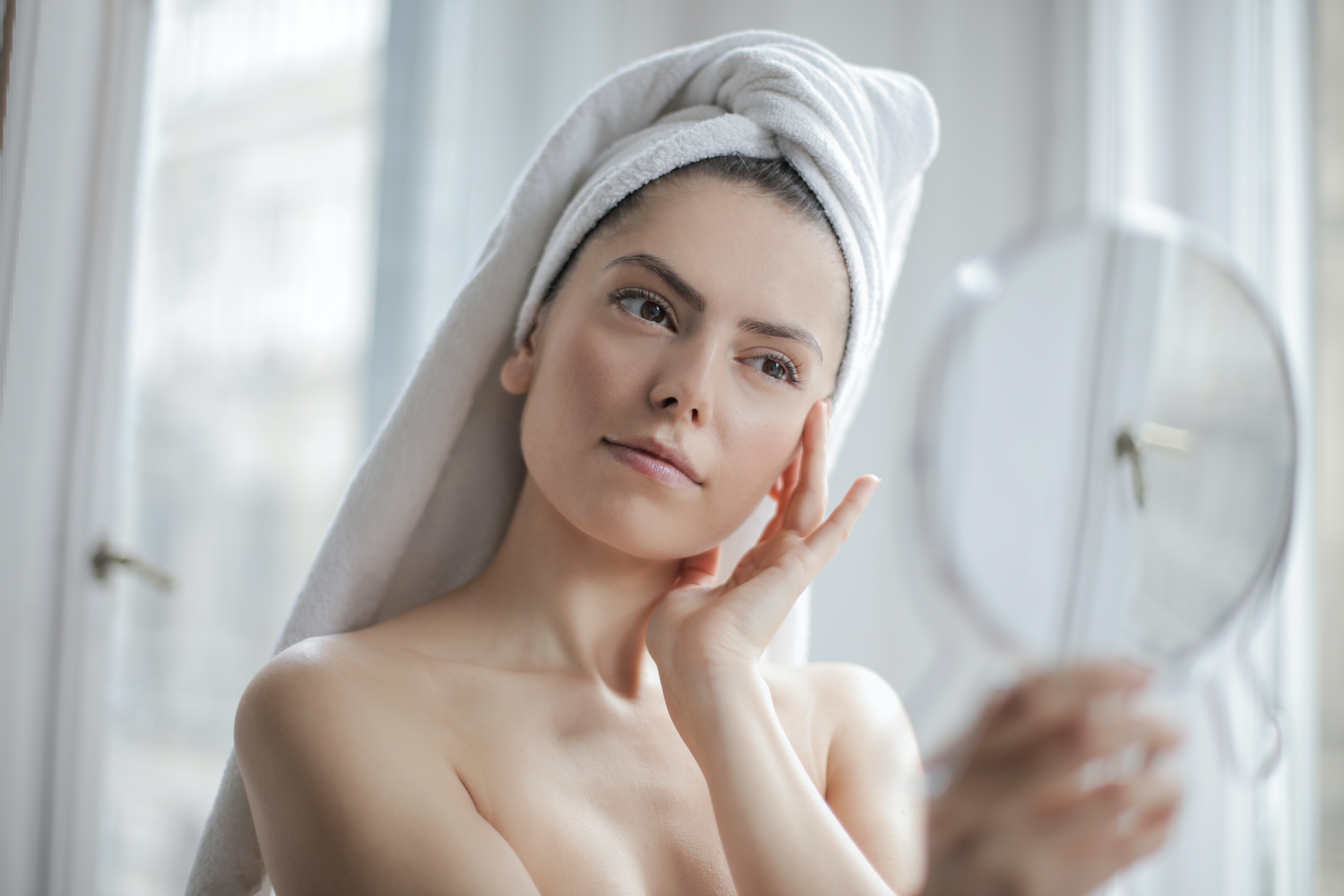Acne is a skin condition that sufferers wouldn’t wish on their worst enemy, as it can cause a lot of physical discomfort on top of the embarrassment that comes from the way in which it affects a person’s appearance. It’s also notoriously difficult for many to treat due to the fact that it can have a wide range of causes that each require a different course of treatment.
So, it’s not too surprising then that more adult acne sufferers are finding that cannabidiol (CBD) is having a critical role in their skincare game. We know that CBD can offer all kinds of valuable properties when we consume it orally, but what happens when we apply the hemp derivative to the skin of our face?
What Causes Acne?
Acne develops due to inflamed or infected pores of the skin that lead to pimples that occur in clusters, also known as ‘breakouts’. Usually, acne is the result of sebum released by the pores that gets clogged. However, the pores can also get clogged with dead skin cells, dirt, or other factors. Acne can also be a sign of an infection of the skin that’s either bacterial or fungal in nature.
As for the reasons acne develops in the first place, well, there are all kinds of culprits, such as the following:
#1: Hormonal Imbalance
Our hormones dictate the production of sebum in the pores, and hormonal imbalances can send that sebum production into overdrive, resulting in clogged pores.
#2: Dietary Issues
Foods that are associated with causing inflammation, such as dairy and sugar, can put a person more at risk of developing acne. Similarly, as the skin requires nutrients like the rest of the body, acne could indicate a deficiency in a critical nutrient.
#3: Stress
Stress fires up cortisol production which in turn triggers the release of excess sebum in the skin, potentially leading to acne breakouts.
#4: Use of Certain Products
Some products that we apply to our face may clog our pores or irritate our skin, resulting in acne. These would be products that contain:
- Acetylated Lanolin
- Algae Extract
- Benzaldehyde
- D & C Red
- Isopropyl Palmitate
- Lauroyl Lysine
- Lauric Acid
- Stearic Acid
#5: Allergies
Yes, sometimes, acne is indicative of a skin allergy, as the skin becomes extremely irritated and changes the way in which the pores release sebum.
#6: Immune/Gut Issues
Many researchers suspect that acne can have more systemic culprits pertaining to the balance of gut bacteria or immunity. As acne is an inflammatory condition, it’s believed that either immune or gut issues that lead to inflammation within the body can express themselves in the form of acne.
Common Treatments for Acne
Ultimately, the best way to treat acne is to zero in on what’s causing it, whether that be an imbalance of hormones, improper diet, poor gut health, etc. This is the way to stop acne in the long term. However, there are products and other methods that can control the severity of breakouts, with the two most common methods being:
- Method #1: Topical Treatments: These include retinol (Vitamin A), salicylic acid, glycolic acid, and benzoyl peroxide. All of them act as chemical exfoliants that speed up cell turnover rate to rid the pores of dead skin and excess sebum.
- Method #2: Oral Treatments: For more severe cases of acne, oral treatments might be necessary, since these work to change the way in which sebum is produced by the skin.
What Might CBD Do for Acne Sufferers?
You might be thinking that cannabidiol is only valuable when it’s taken internally – such as in the form of a tincture or edible. But, applying a hemp extract that’s rich in cannabidiol directly to the skin can actually offer an entirely new variety of useful properties to your daily experience. Cannabinoid receptors exist in the skin, which use cannabinoids like CBD to regulate a wide array of crucial skin functions.
In fact, research has shown that cannabidiol may have some role in managing acne, specifically. For one thing, studies have indicated that CBD offers antimicrobial properties that can potentially kill microbes that are responsible for the infections that lead to breakouts.
Equally valuable are its apparent sebostatic properties which may regulate the production of sebum in the pores. This is where the root of almost all acne cases lie. By balancing how sebum is released, acne could largely be prevented, coupled with its symptoms being possibly managed. This same data shows that the anti-inflammatory properties of cannabidiol could work topically by minimizing the redness, swelling, and tenderness associated with pimples.
What are the Best CBD Products for Acne?

So, the studies clearly show that cannabidiol may offer a lot of usefulness to acne sufferers, mainly due to its unique properties that come from the way in which it supports overall skin self-regulation. Anyone looking to use CBD then for acne needs to apply it topically to get the results they are looking for. This way, you’re targeting the issue with CBD applied directly to the cannabinoid receptors responsible for regulating acne-affected skin processes.
Fortunately, CBD skincare exists, and is changing the landscape of the skincare market as a whole. In fact, Kronic Releaf has formulated a daily skincare serum that has what it takes to give your skin the full potential that cannabidiol has to offer. Rose-hemp Seed Oil Facial Serum combines 100mg of CBD with antioxidant-rich hempseed oil and rosehip oil, which has been found to offer additional sebum-balancing properties to the skin. It’s gentle, all-natural, and highly moisturizing, while being abundant in properties that may provide relief from acne symptoms.
Rosehip seed oil is beneficial to skin because it :
- Hydrates
- Moisturizes
- Exfoliates
- Brightens
- Boosts collagen formation
- Reduces inflammation
- Reduces negative effects of UV exposure
- Reduces scars/fine lines
- Reduces hyper pigmentation (skin discoloration)
Natural oils deliver radiant, youthful complexion, along with incredibly supple skin.
When to See a Professional
Ultimately, if your acne is severe, or if common treatments aren’t minimizing it, we recommend seeing a dermatologist. Similarly, if you’re using a prescription topical for your acne, you will need to ask your dermatologist whether or not they recommend adding a topical CBD-infused product on top of your existing routine. While cannabidiol has not been shown to have any negative skin-related side effects, it is important to follow a trusted professional’s advice.

